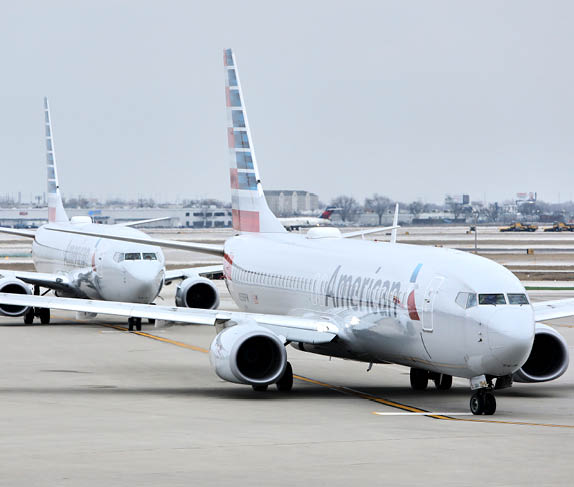Boeing has reported fourth-quarter revenue of $14.8 billion, reflecting higher commercial volume and lower defense revenue. GAAP loss per share of ($7.02) and core loss per share (non-GAAP) of ($7.69) reflect lower charges and higher commercial volume. Boeing recorded operating cash flow of $0.7 billion.
"2021 was a rebuilding year for us as we overcame hurdles and reached key milestones across our commercial, defense and services portfolios. We increased 737 MAX production and deliveries, and safely returned the 737 MAX to service in nearly all global markets. As the commercial market recovery gained traction, we also generated robust commercial orders, including record freighter sales. Demonstrating progress in our overall recovery, we also returned to generating positive cash flow in the fourth quarter," said David Calhoun, Boeing President and Chief Executive Officer. "On the 787 program, we're progressing through a comprehensive effort to ensure every airplane in our production system conforms to our exacting specifications. While this continues to impact our near-term results, it is the right approach to building stability and predictability as demand returns for the long term. Across the enterprise, we remain focused on safety and quality as we deliver for our customers and invest in our people and in our sustainable future."
Operating cash flow improved to $0.7 billion in the quarter, reflecting higher commercial volume, higher advance payments, and lower expenditures.
Debt was $58.1 billion, down from $62.4 billion at the beginning of the quarter due to the prepayment of a term loan and repayment of maturing debt. Total company backlog at quarter-end was $377 billion.
Commercial Airplanes fourth-quarter revenue increased slightly to $4.8 billion primarily driven by higher 737 deliveries, partially offset by lower widebody deliveries and less favorable mix. Fourth-quarter operating margin was primarily driven by a charge on the 787 program.
Boeing says that it is continuing to make progress on the global safe return to service of the 737 MAX. In December, the Civil Aviation Administration of China issued an airworthiness directive outlining changes required for Chinese airlines to prepare their fleets to resume service. Since the FAA's approval to return the 737 MAX to operations in November 2020, over 300,000 revenue flights have been completed, and the reliability of the 737 MAX fleet remains above 99 percent (as of January 24, 2022). The 737 program is currently producing at a rate of 26 per month and continues to progress towards a production rate of 31 per month in early 2022. The company is evaluating the timing of further rate increases.
The company continues to perform rework on 787 airplanes in inventory and is engaged in detailed discussions with the FAA regarding required actions to resume deliveries. In the fourth quarter, the company determined that these activities “will take longer than previously expected, resulting in further delays in customer delivery dates and associated customer considerations”. Accordingly, Commercial Airplanes recorded a $3.5 billion pre-tax non-cash charge on the 787 program. The program is producing at a very low rate and Boeing says that this will continue until deliveries resume, with an expected gradual return to five per month over time. The company now anticipates 787 abnormal costs will increase to approximately $2 billion, with most being incurred by the end of 2023, including $285 million recorded in the quarter.
Commercial Airplanes secured orders for 164 737 MAX and 24 freighter aircraft. Commercial Airplanes delivered 99 airplanes during the quarter and backlog included over 4,200 airplanes valued at $297 billion.
Boeing Global Services fourth-quarter revenue increased to $4.3 billion and fourth-quarter operating margin increased to 9.3 percent primarily driven by higher commercial volume and favorable mix. Operating margin was negatively impacted by a $220 million inventory impairment.
At quarter-end, Boeing Capital's net portfolio balance was $1.7 billion. The change in revenue and earnings from other unallocated items and eliminations was primarily due to the timing of allocations. The loss from other unallocated items and eliminations was also impacted by a $744 million charge related to an agreement between Boeing and the U.S. Department of Justice in 2020. The fourth quarter 2021 effective tax rate primarily reflects a higher income tax benefit due to a lower valuation allowance charge than in fourth quarter 2020.

